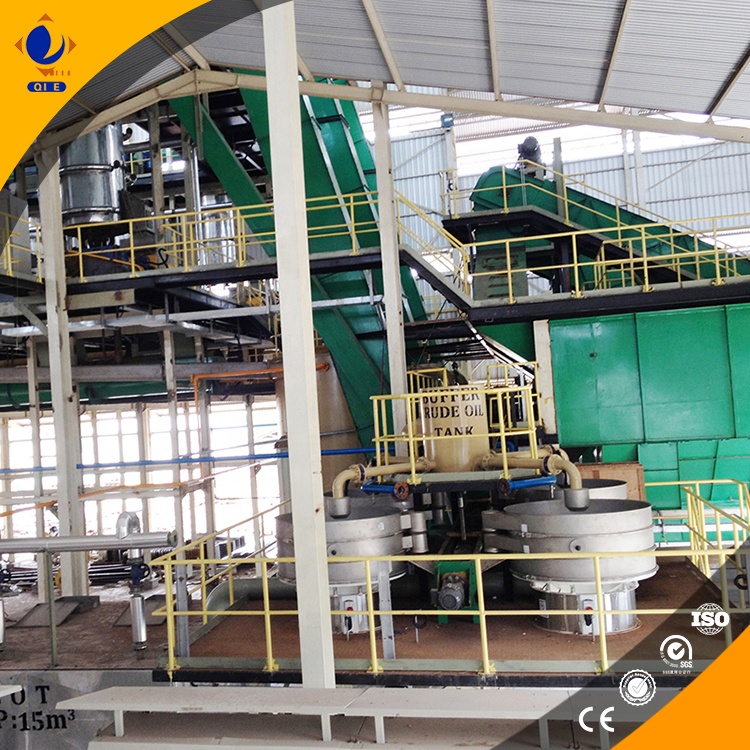
In the competitive landscape of the oil extraction industry, small and medium-sized oil mills often face the challenge of low oil yield. This not only affects their profitability but also their competitiveness in the market. Fortunately, the ZY24 Screw Oil Press offers a solution through advanced process optimization techniques. This article delves into the key aspects of these techniques, providing valuable insights and practical advice for improving the efficiency of small and medium-sized oil mills.
Before discussing the optimization techniques, it's essential to understand the root causes of low oil yield. Several factors can contribute to this issue, including improper raw material pre - treatment, incorrect adjustment of press chamber pressure and temperature, and inappropriate setting of equipment parameters.
The pre - treatment of raw materials is a critical step that significantly affects the oil extraction efficiency. For example, the moisture content and particle size of the raw materials play crucial roles. If the moisture content is too high, it can lead to a decrease in oil yield and an increase in energy consumption during the pressing process. On the other hand, if the moisture content is too low, the oil may not be easily released from the raw materials. Industry experts recommend that for rapeseeds, the moisture content should be controlled between 8% - 10%, for peanuts between 6% - 8%, and for sunflower seeds between 7% - 9%.
The particle size of the raw materials also matters. A proper particle size ensures better contact between the raw materials and the press chamber, facilitating the release of oil. For instance, rapeseeds should be crushed to a particle size of about 2 - 3 mm, peanuts to 3 - 4 mm, and sunflower seeds to 2 - 3 mm.

The pressure and temperature in the press chamber are key factors in determining the oil yield. Maintaining an appropriate pressure helps to squeeze out more oil from the raw materials. Generally, the pressure in the press chamber of the ZY24 Screw Oil Press should be adjusted to 15 - 20 MPa for rapeseeds, 18 - 22 MPa for peanuts, and 16 - 20 MPa for sunflower seeds.
Temperature also has a significant impact. A suitable temperature can reduce the viscosity of the oil, making it easier to flow out. For rapeseeds, the temperature in the press chamber should be maintained at 100 - 110°C, for peanuts at 110 - 120°C, and for sunflower seeds at 105 - 115°C.
The adjustment of equipment parameters such as the rotation speed of the screw shaft, the gap between the press bars, and the distribution of the pressing sections is crucial for optimizing the oil extraction process. The rotation speed of the screw shaft affects the residence time of the raw materials in the press chamber. For rapeseeds, a rotation speed of 20 - 25 rpm is recommended, for peanuts 18 - 22 rpm, and for sunflower seeds 20 - 23 rpm.
The gap between the press bars should be adjusted according to the type of raw materials. A smaller gap can increase the pressure on the raw materials, but it may also cause blockages if not properly set. For rapeseeds, the gap should be 0.3 - 0.5 mm, for peanuts 0.4 - 0.6 mm, and for sunflower seeds 0.3 - 0.5 mm.
.jpg)
Different oilseeds have different physical and chemical properties, so targeted adjustment schemes are necessary. For example, rapeseeds have a relatively high oil content and a hard shell. Therefore, a more intense pre - treatment process and higher press chamber pressure are required. Peanuts have a large particle size and a high oil viscosity, so appropriate temperature control is crucial to ensure smooth oil extraction.
| Oilseed Type | Moisture Content (%) | Particle Size (mm) | Press Chamber Pressure (MPa) | Temperature (°C) | Screw Shaft Rotation Speed (rpm) | Press Bar Gap (mm) |
|---|---|---|---|---|---|---|
| Rapeseeds | 8 - 10 | 2 - 3 | 15 - 20 | 100 - 110 | 20 - 25 | 0.3 - 0.5 |
| Peanuts | 6 - 8 | 3 - 4 | 18 - 22 | 110 - 120 | 18 - 22 | 0.4 - 0.6 |
| Sunflower Seeds | 7 - 9 | 2 - 3 | 16 - 20 | 105 - 115 | 20 - 23 | 0.3 - 0.5 |
There are some common misunderstandings in the operation of screw oil presses. One of the most common is over - emphasizing the press chamber pressure while ignoring the importance of raw material pre - treatment. Another is the improper adjustment of equipment parameters without considering the characteristics of different oilseeds. To solve these problems, operators should have a comprehensive understanding of the entire oil extraction process and make adjustments based on scientific principles.

Many small and medium - sized oil mills have successfully improved their oil yield after applying the optimization techniques mentioned above. For example, a rapeseed oil mill in [Location] increased its oil yield from 35% to 40% by properly adjusting the raw material pre - treatment and press chamber parameters. Industry experts also suggest that continuous learning and improvement are essential for achieving long - term efficiency gains.
If you want to learn more about the ZY24 Screw Oil Press and its advanced process optimization techniques, click here to get detailed information and professional technical support.

